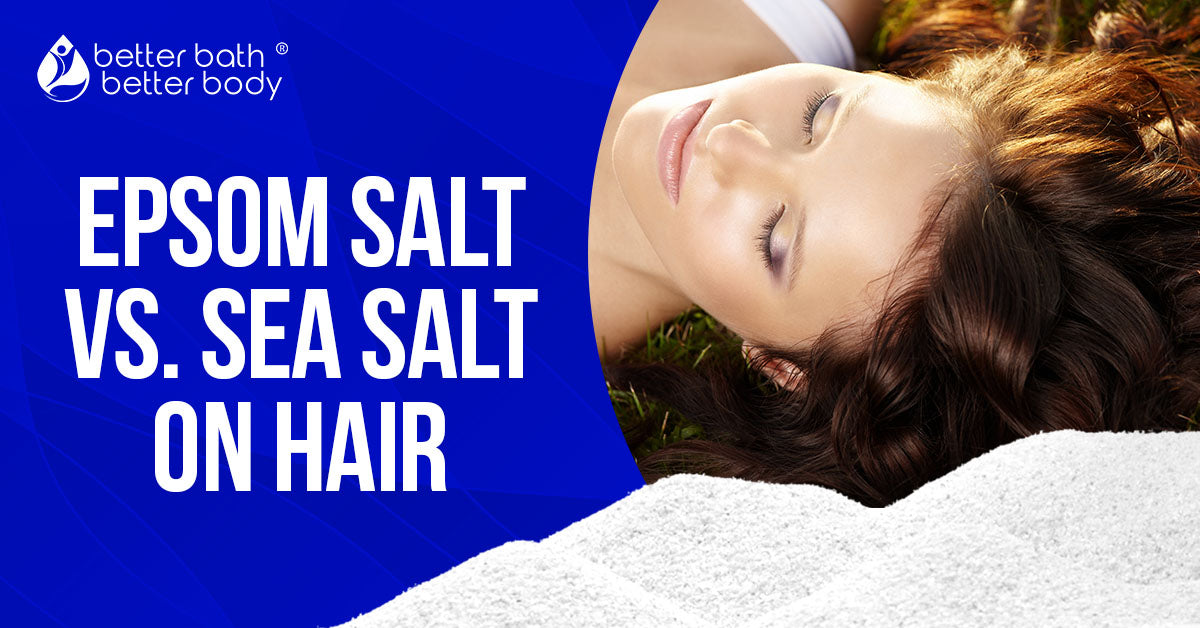
When it comes to taking care of your hair, you want to make sure you're using the best products to keep it healthy and vibrant. In the quest for luscious locks, you might have come across the debate between sea salt and epsom salt on hair.
Both are touted for their potential benefits, but which one is truly better for your hair? Let's dive into the comparison to help you make an informed decision.
Composition And Properties
Epsom salt and sea salt are two different types of salts with distinct compositions and properties. Epsom salt, also known as magnesium sulfate, is a naturally occurring mineral compound composed of magnesium, sulfur, and oxygen.
On the other hand, sea salt is primarily composed of sodium chloride, along with trace minerals like magnesium, calcium, and potassium. One key difference between the two is their grain size.
Epsom salt typically has smaller, finer grains compared to the coarser texture of sea salt. This difference in texture can affect how they interact with your hair and scalp.
At Better Bath Better Body, we offer both in a range of sizes, from 1 to 55-lb bags. Order epsom salt here and click here to purchase Mediterranean sea salt.
Benefits For Your Hair
Epsom salt and sea salt both offer potential benefits for your hair, although they work in slightly different ways. Bathing in epsom salt is known for its ability to help remove buildup from the scalp and hair follicles. Its fine grains can penetrate deeply, helping to cleanse the scalp and remove excess oil and product residue.
Sea salt, on the other hand, is praised for its exfoliating properties. The larger grains can help to slough away dead skin cells and impurities, leaving your scalp feeling refreshed and rejuvenated.
Additionally, sea salt is believed to help add volume and texture to the hair, making it a popular choice for those looking to achieve beachy waves or tousled styles.
Drawbacks To Consider

While both epsom salt and sea salt offer potential benefits for your hair, it's important to consider any potential drawbacks as well. Epsom salt, when used in excess, can have a drying effect on the hair and scalp, especially for those with already dry or damaged hair.
Sea salt, with its coarser texture, may be too abrasive for sensitive scalps and could potentially cause irritation or inflammation.
Choosing The Right Option For You
So, which salt is better for your hair? Ultimately, the answer depends on your unique hair needs and preferences. If you're looking to cleanse your scalp and remove buildup, epsom salt may be the better choice due to its finer texture and ability to penetrate deeply. On the other hand, if you're seeking exfoliation and added texture, sea salt might be more suited to your needs.
At Better Bath Better Body, we offer both epsom salt and Mediterranean sea salt, so you can choose the option that works best for you. Whether you're looking to detoxify your scalp or add volume to your hair, incorporating epsom salt on hair into your hair care routine can help you achieve the healthy, beautiful hair you desire.
Click here to order it online today and browse our range of natural bath salts infused with essential oils while you’re at it. If you’re wondering, “Does epsom salt expire?” we’ve got a blog post all about it.










